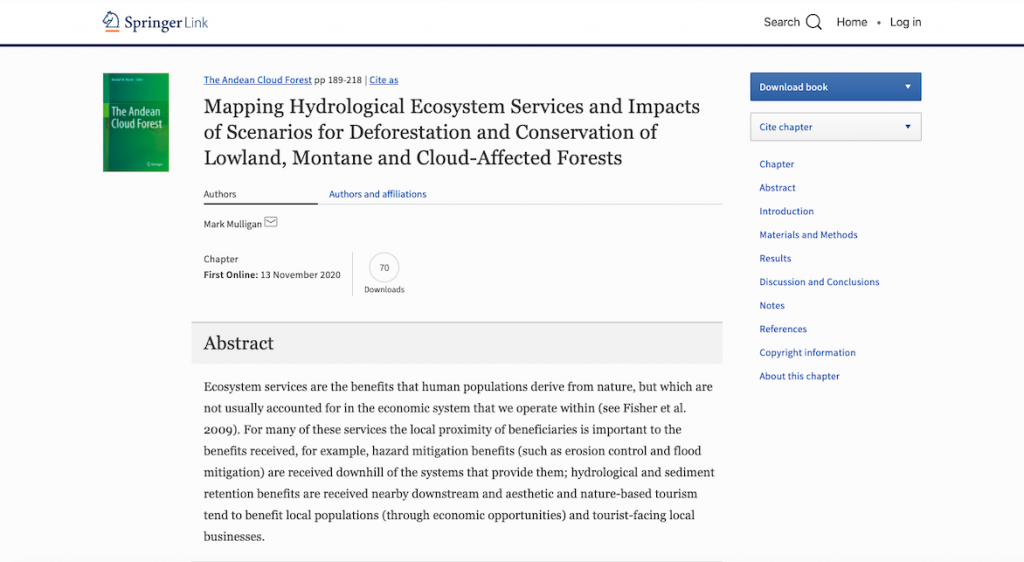Professor Mark Mulligan, Professor of Physical & Environmental Geography at King’s College London, wrote an insightful chapter in The Andean Cloud Forest discussing his findings on cloud-affected forests in South America, Africa, Central America, and Asia. Dr. Mulligan has revealed that 26.9% of land in these regions fall under four forest classifications (all tropical, tropical montane, cloud-affected tree cover, and cloud-affected forests). 31% of forests in these regions are cloud-affected forests, and it turns out that population density in them are much higher (246.4 million) than any other classification. Central America and African population density is highest in cloud-affected forests than any other region studied in the chapter.
Professor Mulligan received his PhD at King’s and has been teaching in the Department of Geography since the age of 24 during the mid 1990s. To learn more about this chapter, read the following abstract:
Ecosystem services are the benefits that human populations derive from nature, but which are not usually accounted for in the economic system that we operate within (see Fisher et al. 2009). For many of these services the local proximity of beneficiaries is important to the benefits received, for example, hazard mitigation benefits (such as erosion control and flood mitigation) are received downhill of the systems that provide them; hydrological and sediment retention benefits are received nearby downstream and aesthetic and nature-based tourism tend to benefit local populations (through economic opportunities) and tourist-facing local businesses.

